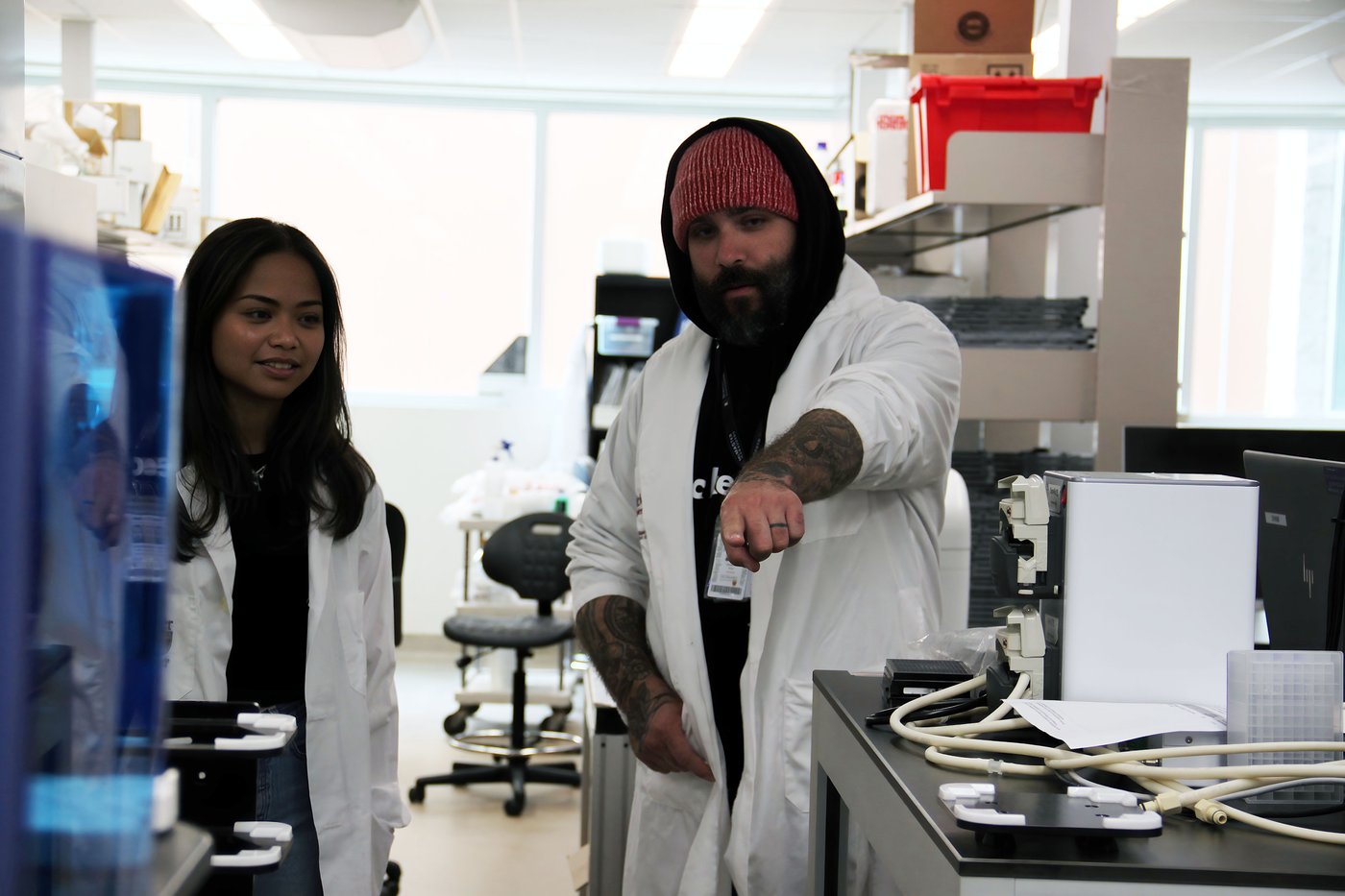Science
AI Accelerates Development of New Antibiotic for Bowel Disease

A researcher at McMaster University has harnessed the power of artificial intelligence (AI) to potentially revolutionize antibiotic treatment for Crohn’s disease and other inflammatory bowel diseases. Jon Stokes and his team, in collaboration with the Massachusetts Institute of Technology (MIT), successfully isolated a new antibiotic treatment in a fraction of the time typically required, demonstrating the speed and efficiency that AI can bring to medical research.
Traditionally, developing a new antibiotic can take several years and cost millions of dollars. However, Stokes’ team managed to complete initial steps in just six months and at a cost of approximately $60,000. This breakthrough illustrates not only the potential for AI to expedite drug development but also its ability to reduce financial barriers in the process.
Implications for Health Care in Canada
The significance of this advancement is particularly pronounced in Canada, which has one of the highest rates of inflammatory bowel disease in the world. Currently, there is no known cure for these conditions, making the search for effective treatments crucial. According to Stokes, the integration of AI into their research not only accelerates the discovery process but also enhances the precision of their findings.
Wyatt Tessari L’Allié, founder of AI Governance and Safety Canada, supports the use of AI in medical research. He emphasized the importance of verifying the work done by AI technologies. “AI use cases like this are mainly good news, as long as people are still double checking the work done by AI,” he stated. Despite the advantages, Tessari L’Allié pointed out that there is currently no comprehensive AI legislation in Canada that encompasses healthcare. The regulation of AI in medical applications is managed by Health Canada on a case-by-case basis.
The research team’s innovative approach not only highlights the potential of AI in medicine but also raises questions about the regulatory frameworks needed to ensure safety and efficacy in healthcare applications.
The findings of this study were first published on October 5, 2025, by The Canadian Press, marking a significant milestone in the intersection of technology and health research. As AI continues to evolve, its applications in the medical field could lead to more breakthroughs in treatments, ultimately benefiting countless patients suffering from chronic illnesses.
-

 Politics4 weeks ago
Politics4 weeks agoSecwepemc First Nation Seeks Aboriginal Title Over Kamloops Area
-

 World5 months ago
World5 months agoScientists Unearth Ancient Antarctic Ice to Unlock Climate Secrets
-

 Entertainment5 months ago
Entertainment5 months agoTrump and McCormick to Announce $70 Billion Energy Investments
-

 Science5 months ago
Science5 months agoFour Astronauts Return to Earth After International Space Station Mission
-

 Lifestyle5 months ago
Lifestyle5 months agoTransLink Launches Food Truck Program to Boost Revenue in Vancouver
-

 Technology3 months ago
Technology3 months agoApple Notes Enhances Functionality with Markdown Support in macOS 26
-

 Lifestyle3 months ago
Lifestyle3 months agoManitoba’s Burger Champion Shines Again Amid Dining Innovations
-

 Top Stories2 months ago
Top Stories2 months agoUrgent Update: Fatal Crash on Highway 99 Claims Life of Pitt Meadows Man
-

 Politics4 months ago
Politics4 months agoUkrainian Tennis Star Elina Svitolina Faces Death Threats Online
-

 Sports5 months ago
Sports5 months agoSearch Underway for Missing Hunter Amid Hokkaido Bear Emergency
-

 Politics5 months ago
Politics5 months agoCarney Engages First Nations Leaders at Development Law Summit
-

 Technology5 months ago
Technology5 months agoFrosthaven Launches Early Access on July 31, 2025





















